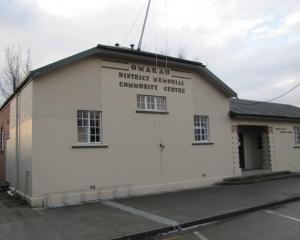
The tree can be traced back to others grown by Mrs Alabaster’s parents when she was a child in Alexandra.
Mrs Alabaster, nee Kemp, who in 2009 received a QSM for services to the community for her work supporting Dunstan Hospital, had planted a stone from one of the trees as a child. It "grew and grew and grew" and bore fruit, which was unusual for a fruit tree grown from a stone, Mrs Alabaster said.
When the couple married on January 10, 1953, one of her clearest memories was of the masses of fruit growing on the tree, "and all the people that came to visit at home leaning over the peaches and trying to eat them without dripping juice on their clothes".
When the Alabasters bought a cottage next door to Mrs Alabaster’s parents’ home and the part of her parents’ section with the peach tree was sold, they transplanted the tree Mrs Alabaster had planted.
It "took a bit of digging", but Mr Alabaster (87), who was a top sportsman, representing New Zealand in both cricket and basketball,
dug trenches around the tree and then a front-end loader did the rest. The entire tree was replanted at their new home.
The tree continued to bear fruit, and when they moved to another home more than 30 years later, grafts from the tree were put on to cuttings, two of which were planted at their new home.
The trees continued to provide "sweet fruit" and it was special eating the peaches each year on their anniversary, Mrs Alabaster said.
"Some summers it’s been a bit late and we’ve been going out urging the peaches to come along. But then this summer with the season so early we didn’t know if there would be any left by the time our anniversary came. But every year the fruit has been there."
Mr Alabaster has only missed one of his wedding anniversaries at home, when he was touring South Africa with the New Zealand cricket team, so that year Mrs Alabaster "ate a second peach in his honour".
Mr Alabaster, who went on five overseas tours as a New Zealand cricketer, said he had loved his time as a sportsman but the new era of professional sport was not his "cup of tea". As he also loved his career as a teacher and did not want to spend too much time away from his family, he would not have committed to the time necessary to be a paid sportsman "at that level", he said. He was twice offered the opportunity to move into professional sport, but turned them both down.
He paid tribute to his wife, who "carried the family while I was away", and said the secret to a long and happy marriage was "give and take" and tolerance.
Mrs Alabaster — who was also a teacher, the couple meeting while they were at teacher’s college in Dunedin — said another important part of their marriage was that they were already friends before they married.
She downplayed her Queen’s Service Medal, saying it represented the work of the many who lobbied for improved services at Dunstan Hospital and consequent successes were the result of "the work of many in the community".
In 1992, Mrs Alabaster established the Friends of Dunstan Hospital, which raised hundreds of thousands of dollars over the years and was one of the catalysts for "the fight" to retain health services in the area and build a new hospital at Clyde in 2005. She also helped establish the Central Otago Advisory Committee on Health, in 1998, to ensure the continuing provision of health services across the wider Central Otago area.
The group later became Central Otago Health Inc, which is now the sole shareholder of Central Otago Health Services Ltd, which operates Dunstan Hospital. Mrs Alabaster was also the first chairwoman of the inaugural Rural Otago Primary Health Organisation.
The Alabasters enjoyed a "low-key" day with family on their anniversary on Wednesday.












